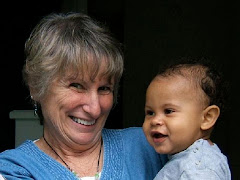Monday, March 28, 2011
Sensory Processing Disorder and the Classroom
I began to write about SPD or Sensory Processing Disorder on my facebook page: Challenging Children. Many children in the classroom have difficulty with processing information that comes through the senses. The sensory difficulties which are truly neurological disabilities. The processing problems may be difficulty reading verbal or nonverbal cues. An inability to understand an auditory message. Sensory processing difficulties are the result of a disorganized brain...a child may have difficulty modulating his/her responses and is overly responsive or under resposive. A child may have sensory discrimination problems and misreads touch. Such a child may lash out at anyone who brushes up against him. And so what is a teacher to do about such a child even if the child has been identified. And realize, please that many children with SPD have not been identified. These children need understanding and support and what follows is a list of strategies for the classroom to help such children. And the very good news about these strategies is that they also help every child in your classroom. Children need a safe, calm environment that is free from distraction. Every child needs frequent breaks in the work period to move and to stretch. Every child wishes to know that someone is paying attention. Paying attention to her needs, her strengths and weaknesses, ups and downs and likes and dislikes. Every child needs to feel valued in order to be successful. Children need to know this regardless of their abilities in relation to others. A child needs to know that his ideas are of value and he if valued. And as you can see, if this is how you run your classroom all children can thrive regardless of whether or not they have a sensory processing challenge.
Subscribe to:
Post Comments (Atom)



No comments:
Post a Comment
I really look forward to both your questions and comments.